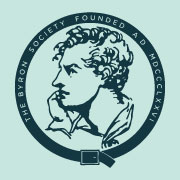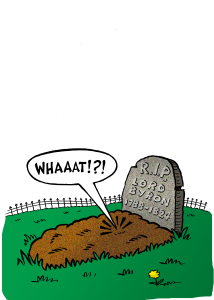by Max Gutmann
20th May 2021
(Credit: The cartoon is by Jim Siergey. Some of these stanzas were first published in Slant).
Don Juan Finish’d is a fanciful completion of Lord Byron’s comic epic Don Juan. Its first ten stanzas introduce the project, make sure the reader knows how Byron pronounced “Juan,” and prepare for a quick summary of Byron’s poem. The epigraph comes from Byron: “Nothing so difficult as a beginning/In poesy, unless perhaps the end”.
There’s nothing difficult as a beginning
In poetry (as someone somewhere said)—
Except an ending; poets’ hair starts thinning
Near endings. Though the hair on Byron’s head
Stay’d thick, he found conclusion so chagrining
Before he clos’d his epic: he was dead!
Those readers who would see the story through,
This irks—I’ll bet it irk’d ol’ Byron, too!
Two hundred years: a lengthy time to stew on
Half sleeping at a British breakfast table.
But that’s the sad condition of Don Juan,
Maroon’d mid-canto there in Byron’s fable.
(Yes, fable.) Shall he stay there? That’s my cue: On!
Don Juan lives! You fear I’ve grown unstable?
The scheme suggests derangement? My position’s:
It’s not the most outlandish of suspicions.
I ask, though, is it terribly unreasonable
To feel “in medias res” as poor a spot
For ending as beginning? Is it treasonable
To tamper with a better poet’s plot?
The horns are where the valiant should be seizin’ a bull.
(The other end, thanks much, I’d rather not.
I know it has its use—with which I’ll try,
In ending this for Byron, not to vie.)
A lonely business, reinvigorating
A tale that’s lain here dormant all these years.
It’s bad enough to spend one’s time creating
New work; e’en that’s deem’d feeble by one’s peers,
Who live so reasonably, dedicating
Themselves to more remunerative careers
This work invites e’en greater condescension,
A poem whose title I can’t even mention;
For if I say I’m finishing “Don Ju-an”
(Three syllables), folks think my Spanish gone,
Though this pronunciation is the true one
As ’tis Lord Byron’s poem I’m working on,
Which leaves me in a quandry what to do: one
Can’t say that one is finishing “Don Juan”;
It makes one sound deficient in the head
To finish up a poem one’s never read.
I don’t, of course, expect enthusiasm.
The academics, if they’re made aware
Of my attempt, will feel to fill this chasm
Is not a thing the likes of me should dare.
The more excitable may have a spasm.
“The upstart! Does the bastard even care
That it’s the great Lord Byron he assails?
My word! What next? The Canterbury Tales?”
My Muse, though, scorns such paltry calculations
As publishing and praise. It’s not for Glory
I labour (nor for irking my relations,
Whatever they may think), but for the Story!
For matters less refin’d I lack the patience.
I own a mind that soars beyond such sorry
Concerns as those, and, proving this indeed,
A shelf of work that nobody will read.
So forward!—ah, but first a wee bit backward,
Retracing Byron’s ground, but at a run.
I ‘ll take some pages here to quickly stack word
On word about the tale Lord B has spun.
I shan’t say we’re “reviewing”; ’tis a black word
To those, like me, who’ve ne’er had even one
Book publish’d. No, I’ll use a word far kinder
And call these next few stanzas a reminder,
For I would not insult you by suggesting,
Good Reader, that you’ve never read your Byron.
But neither would my poem gain by testing
Your memory; such exercises tire one.
Perhaps you’re somewhere in the mountains, resting,
Your day’s exertion ended, with a fire on
The hearth and this slim volume on your knee,
Far separated from your library.
The perfect aid for you in this condition,
The most enlight’ning method to remind one
Of Byron’s brilliant epic exposition,
Would take the two related works and bind one
Up with the other in one large edition.
My publisher, however—should I find one,
Those dodd’ring, purblind rascals—d——n their eyes!—
Will be too stingy. I’d best summarise.


